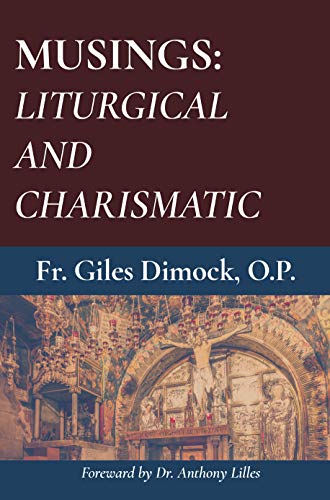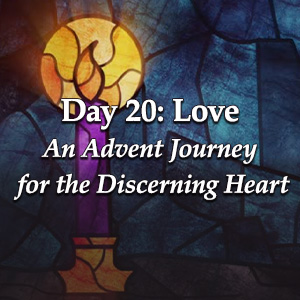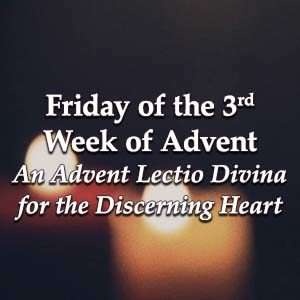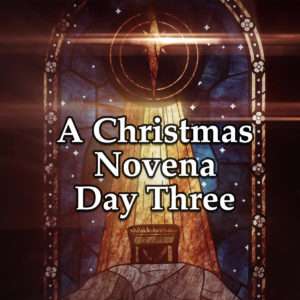Podcast: Play in new window | Download (Duration: 4:33 — 3.3MB) | Embed
Subscribe: Apple Podcasts | Spotify | Amazon Music | Android | Pandora | iHeartRadio | JioSaavn | Podchaser | Gaana | Podcast Index | Email | TuneIn | Deezer | Anghami | RSS | More
An Advent Journey for the Discerning Heart:
Prepare your heart for Christ through Scripture, the saints, and the gentle practice of daily listening.
Part Four: Welcoming Christ with a Heart Fully Awake
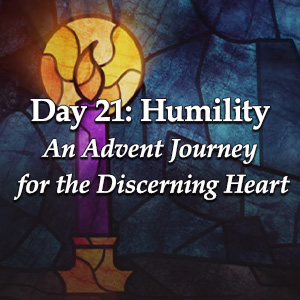 DAY 21 – Humility
DAY 21 – Humility
“He must increase, but I must decrease.”
John 3.30 (RSV)
Humility is the doorway through which Christ enters the heart.
It is not self-humiliation, nor a denial of the goodness God has placed within you. Humility is simply truth: the truth about who God is, and the truth about who we are before Him.
We belong to God. We depend on Him for every breath. We exist because His love called us into being and His love sustains us in this moment.
Humility recognizes this relationship and responds with trust, gratitude, and openness.
Humility makes room. It clears the inner clutter of pride, self-reliance, and fear. It softens the instinct to control and quiets the need to appear strong before others. It allows the heart to receive Christ on His terms, not ours.
In humility, the listening heart says:
“I am Yours.
Come and do what You desire.”
This is why humility is the first virtue of Advent’s final days. It prepares the soul to welcome Christ not as an idea, but as a living presence who desires to dwell within us.
The humble heart becomes a manger, a real place for God to rest.
Journey with the Saints –
St. Thérèse of Lisieux
“It is to the humble and little ones that God reveals His secrets.”
St. Thérèse, Manuscript C
Thérèse understood that humility is not weakness, but availability.
She teaches that God bends low to reach the soul that knows its need for Him. For Thérèse, humility was not about thinking less of herself but about recognizing that everything good in her life was God’s gift.
She believed that humility allows the soul to approach God with childlike confidence. The smaller the heart becomes through humility, the more God can fill it with His own life.
Her “Little Way” is simply the path of the humble soul that trusts God to do what it cannot do for itself.
Thérèse reminds us that humility is the space where God delights to dwell.
Reflection for the Listening Heart
Today invites you to let go of the inner posture that tries to hold everything together alone.
Humility is not resignation. It is relationship. It is the heart turning toward God and saying: “I need You. I depend on You. I trust that You are good.”
Humility frees the soul from the exhausting effort of self-sufficiency. It shifts the heart from anxiety to surrender, from striving to receiving.
Ask yourself: Where is Christ inviting me to become small so He can grow within me? What part of my heart needs to release control and make room for His presence?
A Simple Practice for Today
Speak one quiet sentence of surrender sometime today: “Lord, I give You permission to work in me.”
Say it slowly. Mean it as best you can.
Let it open a small space in your heart for His coming.
Prayer
Jesus, gentle and humble of heart,
teach me the humility that opens the door for You.
Empty my heart of pride, fear, and self-reliance.
Make me small enough to receive Your greatness.
Prepare a place within me where You may rest,
and let my life reflect the humility of Your own coming.
Amen.
For more of the episodes of
An Advent Journey for the Discerning Heart with Kris McGregor visit here
Citations for Day 21
John 3.30 RSV
St. Thérèse of Lisieux, Manuscript C
© Discerning Hearts. All rights reserved.





